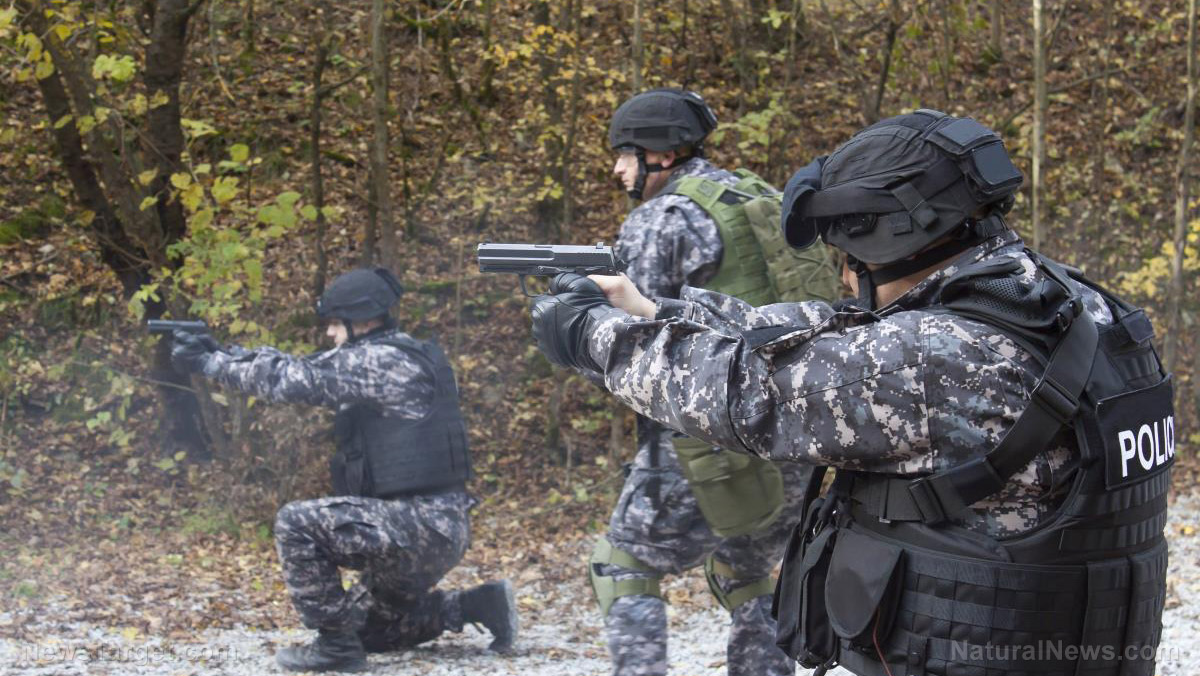DARPA researching method to put injured soldiers into suspended animation to buy more time for help to arrive
03/28/2018 / By David Williams

Soldiers that are wounded in the battlefield often face terrifying ordeals that can quickly lead to their untimely deaths. For this reason, the military is constantly looking for ways to improve the way they respond to calls for help whenever any members get injured in the line of duty. Now the actual U.S. agency that’s in charge of developing new tech that’s meant to be used in the military, the Defense Advanced Research Projects Agency (DARPA), says they may have found a new viable solution.
As a report about the agency’s most recent efforts state, they are looking for ways to “buy some extra time” for soldiers who are injured on the battlefield. Instead of trying to get medical care faster to the soldiers, DARPA wants to slow down time itself to increase the chances of a soldier’s survival.
They plan to do this through a new method they call Biostasis, which is designed to “slow life to save life,” according to an official statement. It works by slowing down the body’s various biochemical reactions until a person’s body ends up in a suspended state, so that time can simply pass by until medical attention finally arrives.
According to Tristan McClure-Begley, they got their inspiration for the method from tardigrades, tiny creatures that are known for their incredible feats of resilience and survivability. “Nature is a source of inspiration,” he explained. “At the molecular level, life is a set of continuous biochemical reactions.” So with their method, they aim to slow down these biochemical reactions and ultimately slow down aging and prevent wounds and injuries from becoming worse before being treated.
100% organic essential oil sets now available for your home and personal care, including Rosemary, Oregano, Eucalyptus, Tea Tree, Clary Sage and more, all 100% organic and laboratory tested for safety. A multitude of uses, from stress reduction to topical first aid. See the complete listing here, and help support this news site.
Tardigrades, colloquially known as water bears, are microscopic creatures that can survive extremely harsh conditions such as being exposed to massive amounts of radiation or being completely dehydrated, even up to hundreds of years. They can accomplish this through performing what is referred to as cryptobiosis, wherein all of their metabolic processes seem to stop completely, yet they are still alive. (Related: Eight-legged tardigrades are the ultimate doomsday survivors and can live 30 years without food or water).
McClure-Begley said that the new treatment method is only meant to serve as an intervention. “Our goal with Biostasis is to control those molecular machines and get them to all slow their roll at about the same rate,” he remarked. “so that we can slow down the entire system gracefully, and avoid adverse consequences when the intervention is reversed or wears off.”
It is said that the program under which Biostasis was developed is at the center of a much bigger effort that was initiated to directly address the need for additional time in continuously operating biotech systems when there are catastrophic or life-threatening events going on.
As of now, although they’ve made great progress with the method, actual preservation of bodies as they await much-needed medical attention is still a bit far from becoming a reality. There are still plenty of technical issues standing in the way.
For now, the scientists at DARPA are looking to perfect their way of slowing down biochemical processes in various types of cells and tissues, and eventually scale their way up to full-size live organisms. If successful, their methods could even be applied to other things like prolonging the shelf life of certain food products and other kinds of perishable items. It’s only a matter of time until they manage to make the most out of this concept.
Read more about future biotech solutions in Biotech.news.
Sources include:
Tagged Under: battlefield medicine, biostasis, DARPA, emergency medicine, first aid, future tech, injuries, inventions, military, soldiers, suspended animation, tardigrades, War, weird science




















